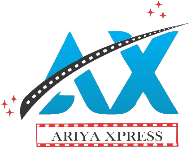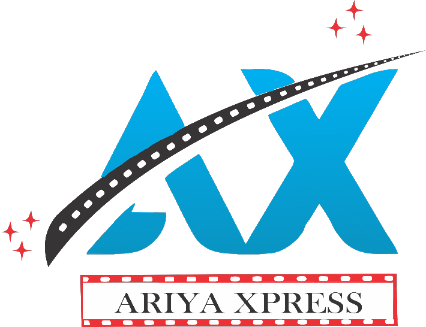North-West and South-West, the geopolitical zones of the President, Major General Muhammadu Buhari (retd.), and the Vice President, Prof Yemi Osinbajo, respectively have the highest number of projects allocated to them among the projects that will be funded with the fresh external loans the President is asking the National Assembly to approve for his regime, Saturday PUNCH has learnt.
Buhari had asked the National Assembly to approve fresh external loans of $4.05bn and €710m for his regime.
He also sought the legislature’s approval for grant components of $125m in the 2018-2020 external rolling borrowing plan.
These were contained in a letter addressed to both chambers of the National Assembly and read by the Senate President, Ahmad Lawan, and Speaker of House of Representatives, Femi Gbajabiamila, respectively on Tuesday on the floor at the resumption of plenary.
Buhari in the letter, dated August 24, 2021, explained that the projects listed in the 2018-2021 Federal Government Borrowing Plan would be financed through sovereign loans from the World Bank, French Development Agency, EXIM Bank International Fund for Agricultural Development, Credit Suisse Group and Standard Chattered/China Export and Credit in the total sum of $4,054,476,863 and €710m and grant components of $125m.
According to the President, a summary of some key projects in each of the six geopolitical zones that will be funded by the loans and a summary on the expected impacts on the socioeconomic development of each of the six geopolitical zones were attached to the letter.
North-West, South-West ahead other regions with four mega projects
According to the breakdown obtained exclusively by our correspondent, 13 key projects each to be funded with the loans were listed for the North-West and South-West, making them the geopolitical zones with the highest number of projects.
The President is from Katsina State in the North-West while Vice-President Yemi Osinbajo is from Ogun State in the South-West.
Our correspondent, however, noticed that most of the projects that were listed for the two zones are projects that are common to all the geopolitical zones or more than two zones, leaving only one project that is peculiar to the South-West and two that are peculiar to the North-West.
The only project peculiar to the South-West is the Lagos-Ibadan railway modernisation project (Apapa-Tin Can Island Ports Project); while the two that are peculiar to the North-West are the Kaduna Bus Rapid Transport Project and the Kano-Katsina-Jibiya-Maradi Rail Line.
Apart from the North-West and South-West that have 13 projects each, 11 projects each were allocated to the North-Central, North-East and South-East while 10 projects were allocated to the South-South.
Six zones listed as beneficiaries of $62m NASS solar power infrastructure
Curiously, however, the provision of 17 megawatts hybrid solar power infrastructure for the National Assembly complex which is to be funded with the $62,120,000 to be provided by Standard Chartered Bank/China Export and Credit (SINOSURE) was listed as item 9 for all the six geopolitical zones as beneficiaries.
This is despite the fact that the impact of the project was stated in one of the documents as “to address the National Assembly complex’s power supply deficit and to reduce higher overhead burdensome cost of running and maintaining fossil fuel generators (25 megawatts installed capacity) to power the National Assembly complex.”
Besides the projects peculiar to the geopolitical zones, however, are many others that have all the geopolitical zones as beneficiaries.
They include the $750,000,000 World Bank’s facility for State Fiscal, Transparency, Accountability and Sustainability Programme for Results: the $400,000,000 Nigeria COVID-19 Preparedness and Response Project – Additional Funding; the $700,000,000 Agro-Climatic Resilience in Arid Zone Landscape Project; and the $700,000,000 Nigeria Sustainable Water Supply, Sanitation and Hygiene Project.
Others are the €100,000,000 National Identity Management Project; the $500,000,000 Livestock Productivity and Resilience Support Project; the $276,981,586 three power renewable energy projects and the $200,000,000 Agro-Processing Productivity Enhancement and Livelihood Improvement Support Project, among others.
The PUNCH had reported on Friday that five bodies would jointly provide the $4,054,476,863 component of the loan.
They include the World Bank – $3,250,000,000; China Exim Bank – $225,120,000; IFAD- $50,000,00; European ECA/KfW/IPEX/APC -$190,255,276; Bank of China -$276,981,587; and Standard Chartered Bank/China Export and Credit (SINOSURE) – $62,120,000.
The Euro component of €710m will be provided by AFD – €210,000,00 and Credit Sussie Group €500,000,000 while the World Bank will provide the grant components of $125m.
Part of Buhari’s letter to the National Assembly had read, “I write on the above subject and submit the attached addendum to the proposed 2018-2020 external rolling borrowing plan for the consideration and concurrent approval of the Senate for the same to become effective.
“The distinguished Senate President may recall that I submitted a request on the 2018-2020 borrowing plan for the approval of the Senate in May 2021.
“However, in view of other emerging needs and to ensure that all critical projects approved by the Federal Executive Council as of June 2021 are incorporated, I hereby forward an addendum to the proposed borrowing plan.
“The projects listed in the external borrowing plan are to be financed through sovereign loans from the World Bank, French Development Agency, EXIM Bank and IFAD in the total sum of $4,054,476,863 and €710m and grant components of $125m.
“A summary of some key projects in each of the six geopolitical zones and a summary on the expected impacts on the socioeconomic development of each of the six geopolitical zones are attached herewith as Annex II and III.”
Copyright PUNCH




